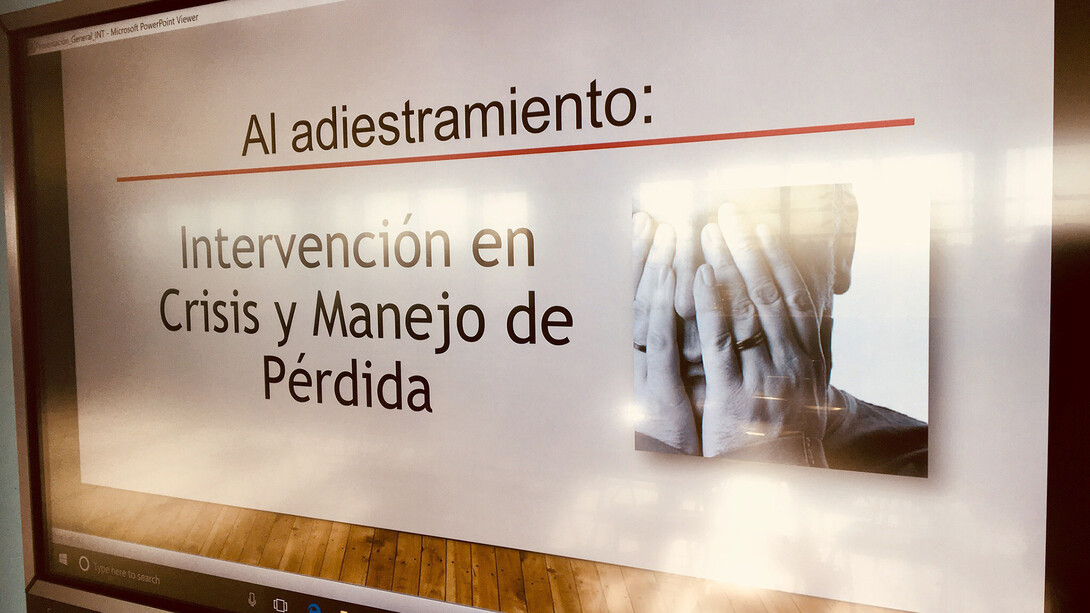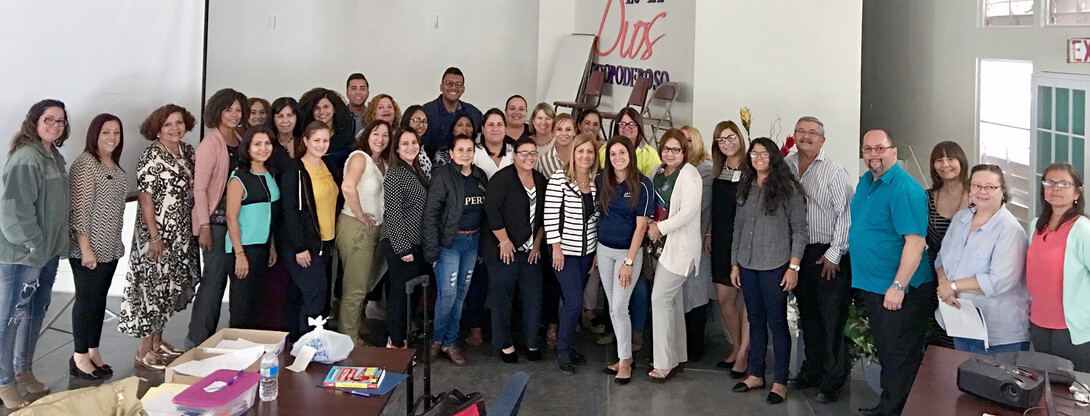
Nebraska-based expertise is helping first responders in Puerto Rico deal with the lingering emotional weight of Hurricane Maria.
For two weeks this summer, Denise Bulling, a senior research director with the University of Nebraska Public Policy Center led seven workshops attended by more than 200 first responders working in Puerto Rican communities. The sessions, organized through the U.S. Department of Health and Human Services, featured information on ways to enhance crisis intervention and methods to better respond to the grief and loss they continue to experience every day.

“The devastation of Hurricane Maria hit almost a year ago and these first responders have been in the communities ever since, helping fellow Puerto Ricans deal with a lot of emotional crises and rebuilding,” Bulling said. “Our workshops give these amazing people a brief respite while offering some tips on how they can help communities move forward.”
Offering a depth of expertise in disaster mental health response, the Public Policy Center is uniquely positioned to provide support to first responders and communities. Based at the University of Nebraska–Lincoln, the center is on constant call to assist with disaster responses within the Cornhusker State. Staff members also respond to disaster events and help with instruction at the national level.

Along with leading workshops in Puerto Rico, the University of Nebraska Public Policy Center has recently helped with crisis counseling associated with California wildfires. Additional outreach efforts outside of Nebraska have brought the center’s expertise to many other states, including Alaska, South Dakota and North Carolina.
“We work with the State of Nebraska to plan for and assist with all behavioral health disaster responses in the state,” Bulling said. “But we are also called to help across the United States in preparing people who work in disaster crisis counseling.”
Earlier this year, Puerto Rican officials had made the request for additional counseling expertise for first responders through the U.S. Department of Health and Human Services’ Substance Abuse and Mental Health Services Administration.
The federal agency immediately contacted Bulling, who is also a trainer for the Federal Emergency Management Agency, to see if she was interested in the project.
“They reached out to me in part because I traveled there in 2008 to help prepare teams to respond to the emotional impacts of Hurricane George,” Bulling said. “I was familiar with the area, so it made sense for me to provide assistance.”

The work in Puerto Rico took on special significance as Bulling felt many of the communities had advanced to the disillusionment phase in the recovery process. In that phase, community members have collected a large amount of frustration and anger, which can easily be directed at the first responders trying to offer aid.
“Many of them said they felt ineffective in the work they were trying to do,” Bulling said. “My job was to help reinforce the skills of the first responders or give them new skills that can empower community members to solve problems on their own.”
During one session, a mental health professional whose father died as the result of Hurricane Maria, attended with her daughter.
“She came seeking a better way to help her community as well as her family,” Bulling said. “She also wanted her daughter there so she could learn and be a helpful resource to her friends. I thought that was a very powerful way to provide additional assistance within a community in need.”
As she traveled between communities, Bulling got a sense that, while slow, Puerto Rico is moving beyond the devastation of Hurricane Maria. She said many tourist areas have reopened, which will help Puerto Rico’s economy and build momentum toward recovery.
“I’m always humbled to be called to assist communities recovering from a disaster,” Bulling said. “We have a reputation in Nebraska for understanding what it’s like to recover from these events and for understanding the intricate nature of disaster mental health.
“It’s an incredible responsibility, but the University of Nebraska Public Policy Center is honored to be a resource that can help communities go through and plan a recovery from natural disasters.”







